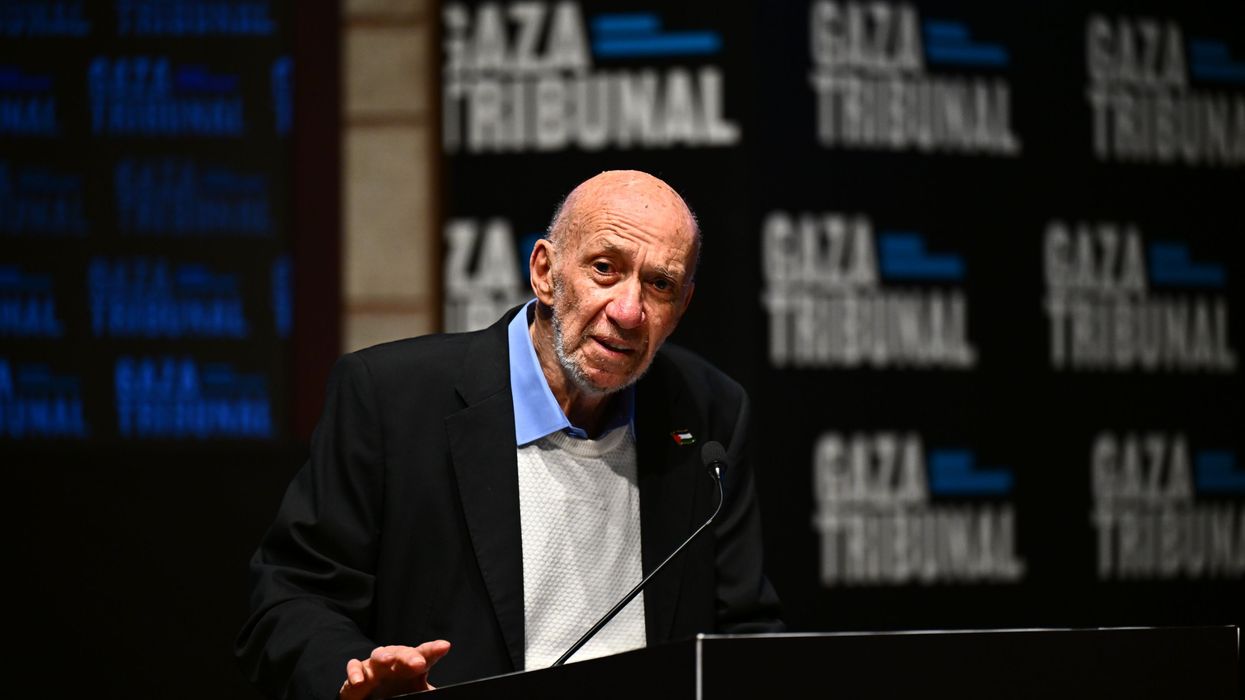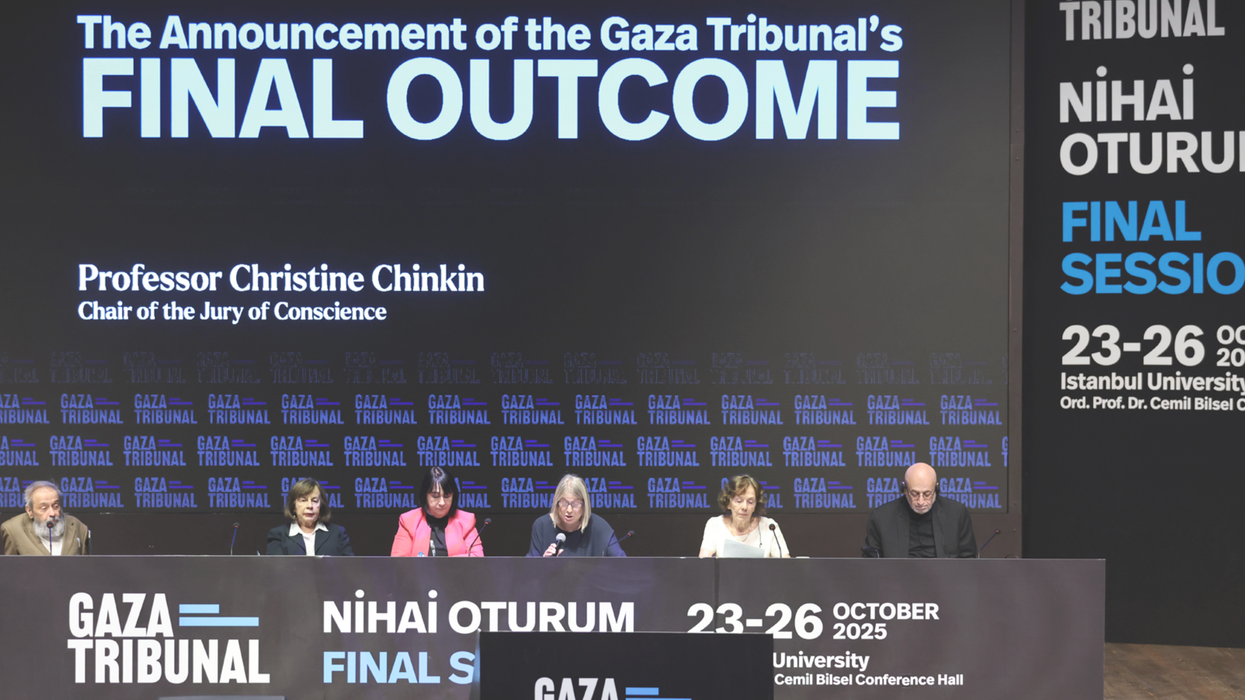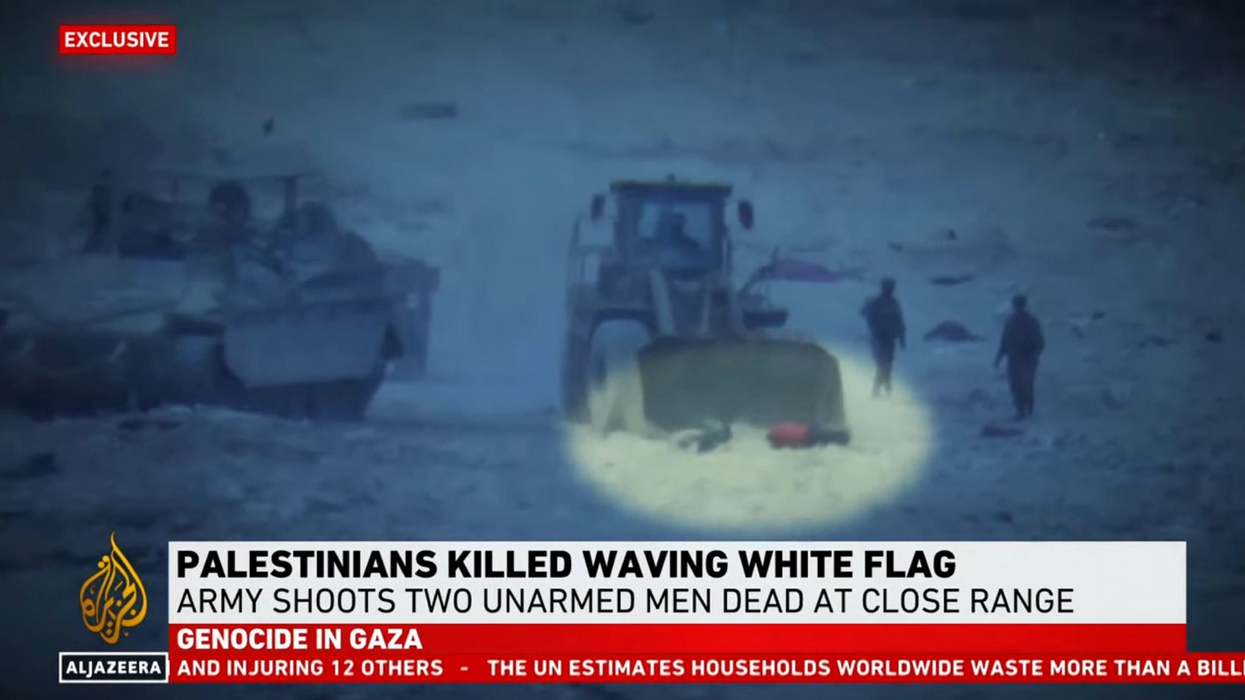'National Security Threat'? 95-Year-Old Human Rights Scholar Richard Falk Interrogated for Hours by Canada
"Clearly, the international repression of the Palestinian cause knows no bounds."
Ninety-five-year-old Richard Falk—world renowned scholar of international law and former UN special rapporteur focused on Palestinian rights—was detained and interrogated for several hours along with his wife, legal scholar Hilal Elver, as the pair entered Canada for a conference focused on that nation's complicity with Israel's genocide in Gaza.
"A security person came and said, ‘We’ve detained you both because we’re concerned that you pose a national security threat to Canada,'” Falk explained to Al-Jazeera in a Saturday interview from Ottawa in the wake of the incident that happened at the international airport in Toronto ahead of the scheduled event.
“It was my first experience of this sort–ever–in my life,” said Falk, professor emeritus of international law at Princeton University, author or editor of more than 20 books, and formerly the UN special rapporteur on the situation of human rights in the Palestinian territories.
Falk, who is American, has been an outspoken critic of the foreign policy of Canada, the United States, and other Western nations on the subject of Israel-Palestine as well as other issues. He told media outlets that he and his wife, also an American, were held for over four hours after their arrival in Toronto. They were in the country to speak and participate at the Palestine Tribunal on Canadian Responsibility, an event scheduled for Friday and Saturday in Ottawa, the nation's capital.
The event, according to the program notes on the website, was designed to "document the multiple ways that Canadian entities – including government bodies, corporations, universities, charities, media, and other cultural institutions–have enabled and continue to enable the settler colonization and genocide of Palestinians, and to articulate what justice and reparations would require."
In his comments to Al-Jazeera, Falk said he believes the interrogation by the Canadian authorities—which he described as "nothing particularly aggressive" but "random" and "disorganized" in its execution—is part of a global effort by powerful nations complicit with human rights abuses and violations of international law to “punish those who endeavour to tell the truth about what is happening” in the world, including in Gaza.
Martin Shaw, a British sociologist and author of The New Age of Genocide, said the treatment of Falk and Elver should be seen as an "extraordinary development" for Canada, and not in a good way. For a nation that likes to think of itself as a "supporter of international justice," said Shaw, "to arrest the veteran scholar and former UN rapporteur Richard Falk while he is attending a Gaza tribunal. Clearly, the international repression of the Palestinian cause knows no bounds."
Canadian Senator Yuen Pau Woo, a supporter of the Palestine Tribunal, told Al-Jazeera he was “appalled” by the interrogation.
“We know they were here to attend the Palestine Tribunal. We know they have been outspoken in documenting and publicizing the horrors inflicted on Gaza by Israel, and advocating for justice,” Woo said. “If those are the factums for their detention, then it suggests that the Canadian government considers these acts of seeking justice for Palestine to be national security threats–and I’d like to know why.”


